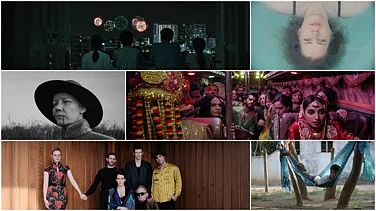As the release date of a 'much-awaited' movie draws closer, the production house, PR and marketing teams start heavily promoting it on various social media platforms. By the end of first day of the movie’s release, social media is flooded with photographs from the film's 'success party'. By the morning of the second day, PR posters showing huge box office collections are splashed across social media, giving a regular movie buff the impression that if the film has done such good business, then it must be worth a watch.
This strategy is the result of months of preparation undertaken by every film's team that aims to float the film's success in minds of a potential audience, so it creates enough curiosity that can only be satiated if you buy the ticket and watch the film. Irrespective of the film's actual footfall or whether the masses genuinely enjoyed the film, a well-calculated strategy is already in place before the film's release.
Recently, a magnum opus of sorts released in theatres starring an acclaimed actress, who is critical and commercial success. As part of the drill, the first weekend box office collection was splashed across the Internet. The film was touted to be a raging success, but a trade insider had another story to tell. Turns out, the weekend collection was portrayed to be double than the actual figures. The trade source tells Outlook, “The movie started off well, but over the weekend, PVR Cinemas had collected Rs 5 crore, INOX had Rs 3.45 crore and Cinepolis had Rs 3 crore. We know that 40 per cent cut from here goes into the multiplex business. How can they (filmmakers) claim that the film brought in a huge first weekend collection?”
Take another scenario. A big Bollywood film with an A-lister released digitally. Since it was not a theatrical release, the only way for a regular theatre-goer to gauge the film’s quality or success was through the reviews. Now this movie got mixed reviews, with the story and direction being at the receiving end. However, here’s the catch. Within a few days of its release, the film’s team threw a grand success party, and social media was bombarded with snapshots from the occasion. Consumers of this content were thus quite confused about the film’s outcome.
So, the question is: what is the deal with these success parties minus any substantial signs of success? Producer and film business expert Girish Johar calls it an effective 'marketing tool'. “It’s more of a perception-based game. Honestly to me, as times have changed, audience preferences and the outlook towards film consumption have also changed. Nowadays, announcing box office numbers, doing success parties and whatever else the PR machinery does, all fall under one bracket, and I call all of that ‘marketing tools’.”
Johar asserts that this whole exercise is quite futile because for the common man, word-of-mouth still remains the only trustworthy source. “There are only few films that the audiences will watch, mainly because the review came from a genuine source that can be their brother, sister, trade analyst or anyone else whose opinion they trust. We are so surrounded by reviews, views and ads on social media that every person who consumes filmy content has a parameter in their mind. Apart from that one trusted source, everything else is just a marketing tool because they are just hammering the thought that the film qualifies as an out-of-the-world content,” he says.
Johar adds that there was a time, these marketing techniques actually worked. “Now I think it’s merely advertising, grabbing space activity. Honestly, I don't think anyone would want to watch Gangubai Kathiawadi because it's doing a particular number at box office. If anyone goes to watch it, it is to see Alia Bhatt, Sanjay Leela Bhansali’s aesthete, or for the storyline, and these three communications will be gauged from the trailer or the poster.”
Why then, there is so much effort and planning to create a false sense of success? A source from the world of movie marketing, under the condition of anonymity, says that in today’s day and age, where one is constantly subjected to extreme scrutiny, it is important to build a perception that a film has done well. “Even though we can access the reviews and see the low footfalls for yourself when you visit a movie theatre, as a consumer you will never get to know the whole picture. Moreover, with the advent of OTT platforms, viewers have the liberty to watch content from the comfort of their homes that is not tabulated or calculated by the common public. This is why it is easy to fabricate the results in today's times.”


























